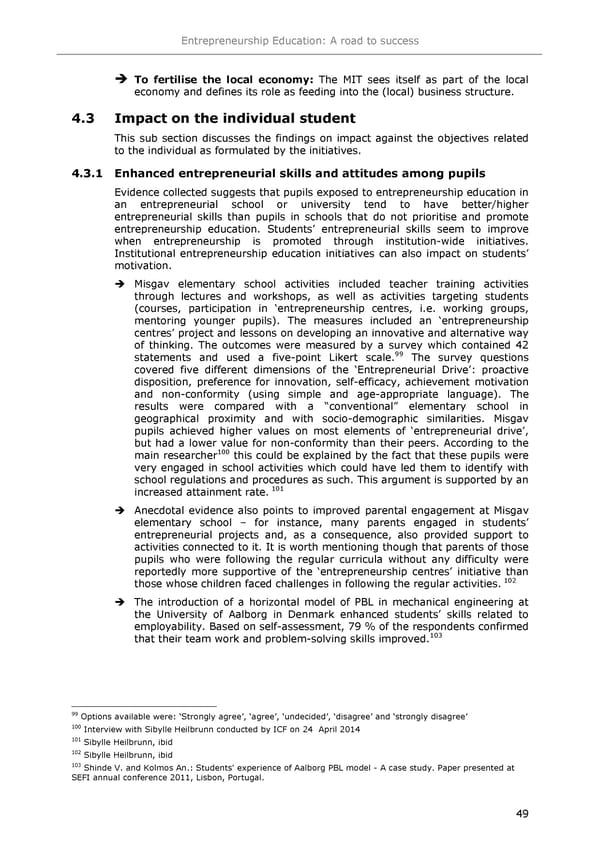Entrepreneurship Education: A road to success To fertilise the local economy: The MIT sees itself as part of the local economy and defines its role as feeding into the (local) business structure. 4.3 Impact on the individual student This sub section discusses the findings on impact against the objectives related to the individual as formulated by the initiatives. 4.3.1 Enhanced entrepreneurial skills and attitudes among pupils Evidence collected suggests that pupils exposed to entrepreneurship education in an entrepreneurial school or university tend to have better/higher entrepreneurial skills than pupils in schools that do not prioritise and promote entrepreneurship education. Students9 entrepreneurial skills seem to improve when entrepreneurship is promoted through institution-wide initiatives. Institutional entrepreneurship education initiatives can also impact on students9 motivation. Misgav elementary school activities included teacher training activities through lectures and workshops, as well as activities targeting students (courses, participation in 8entrepreneurship centres, i.e. working groups, mentoring younger pupils). The measures included an 8entrepreneurship centres9 project and lessons on developing an innovative and alternative way of thinking. The outcomes were measured by a survey which contained 42 99 statements and used a five-point Likert scale. The survey questions covered five different dimensions of the 8Entrepreneurial Drive9: proactive disposition, preference for innovation, self-efficacy, achievement motivation and non-conformity (using simple and age-appropriate language). The results were compared with a
 Entrepreneurship Education Page 52 Page 54
Entrepreneurship Education Page 52 Page 54